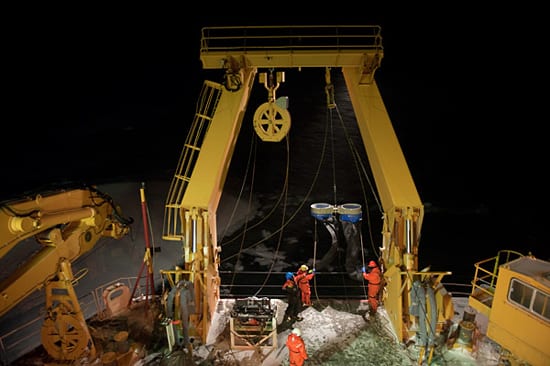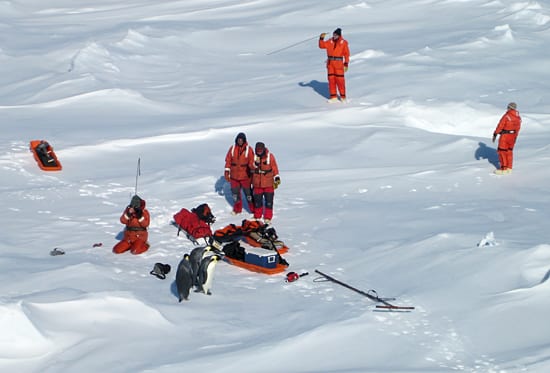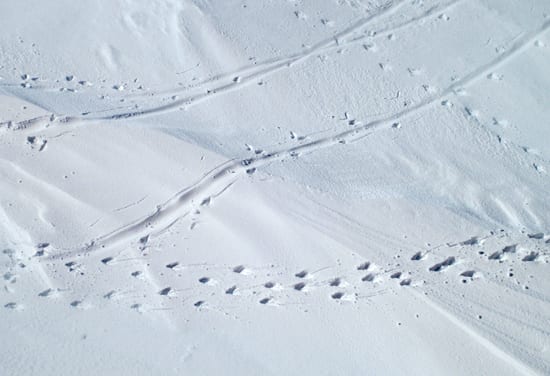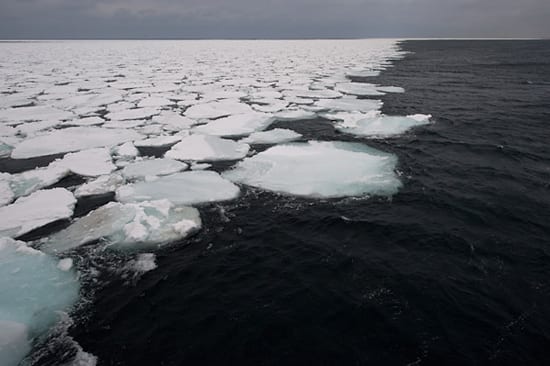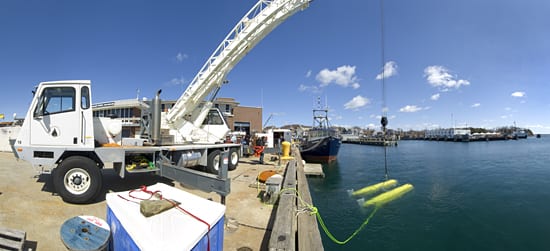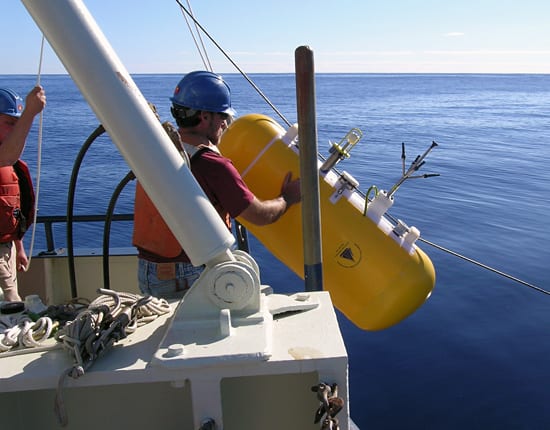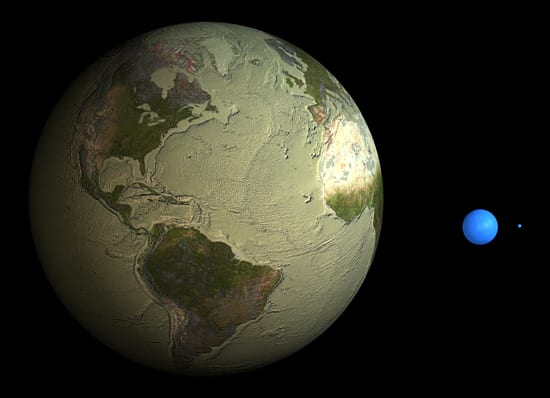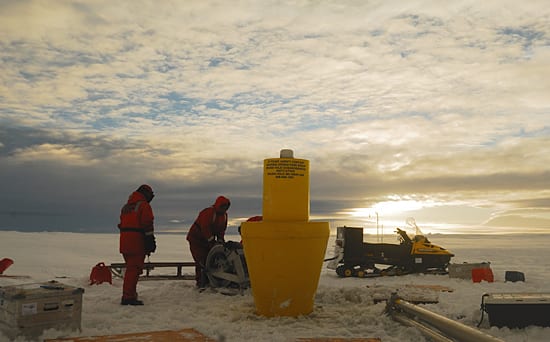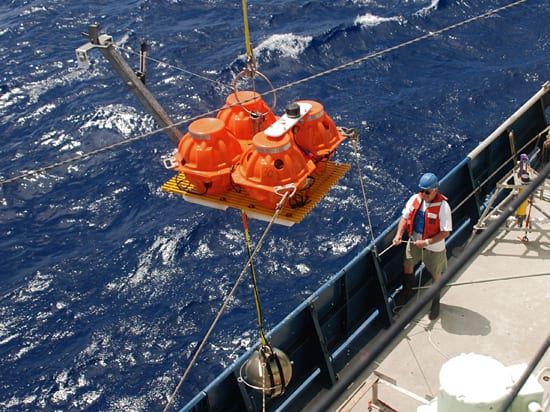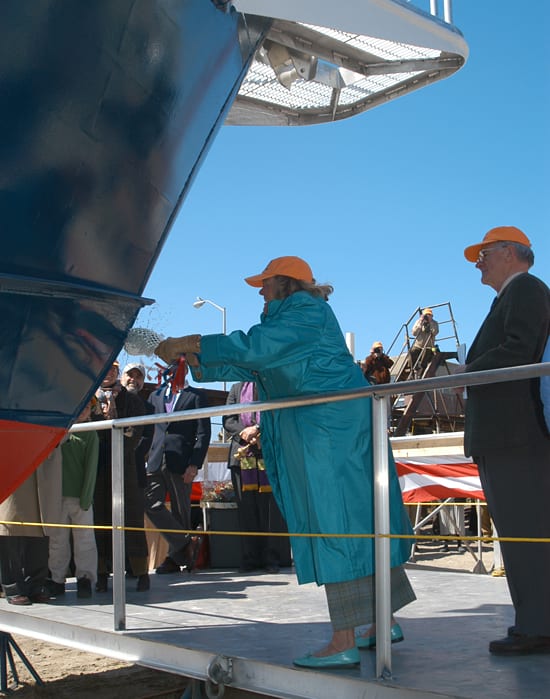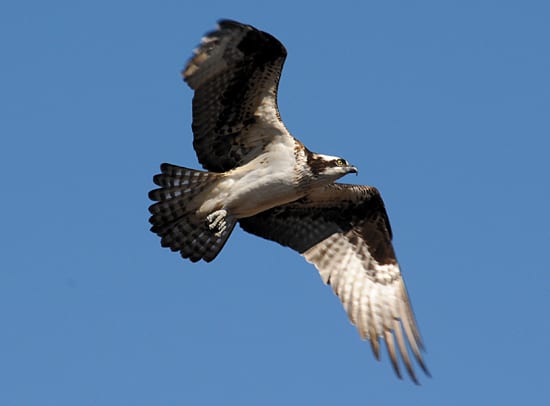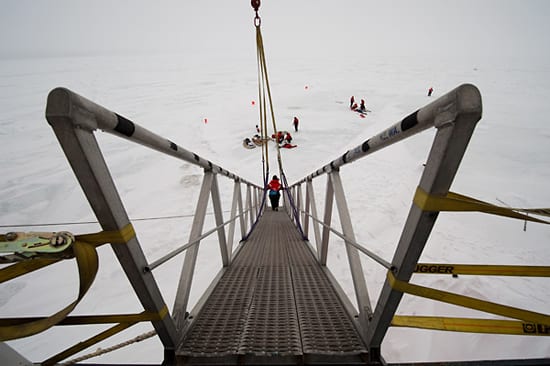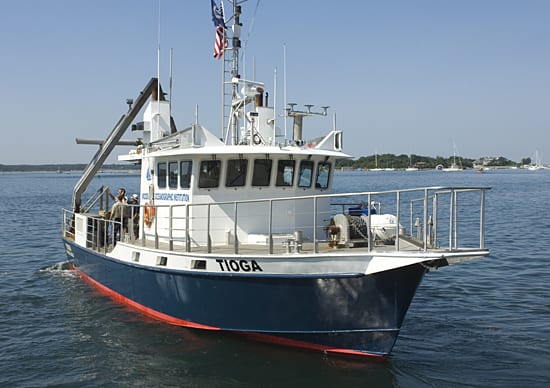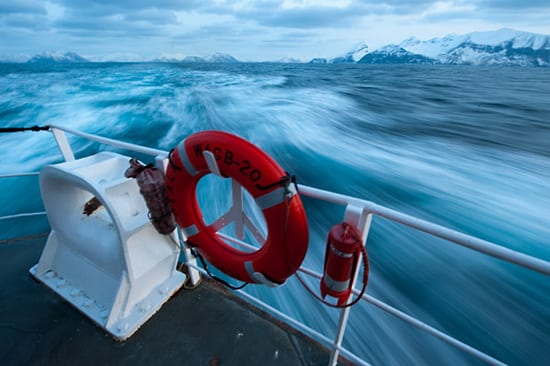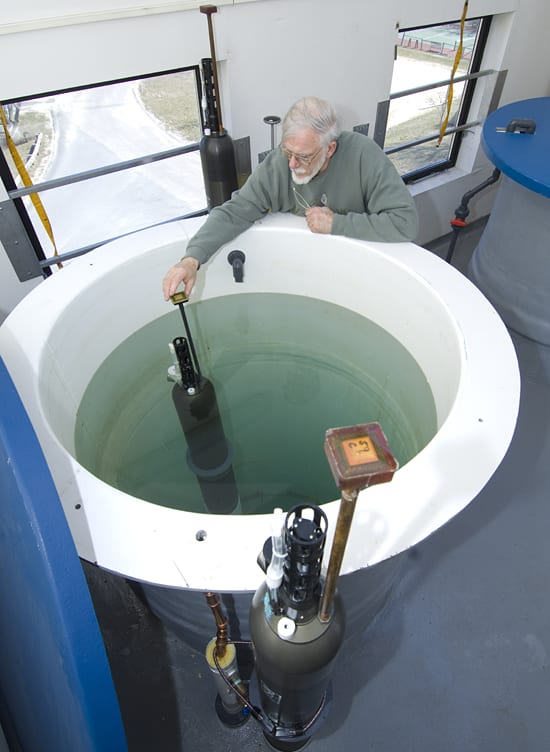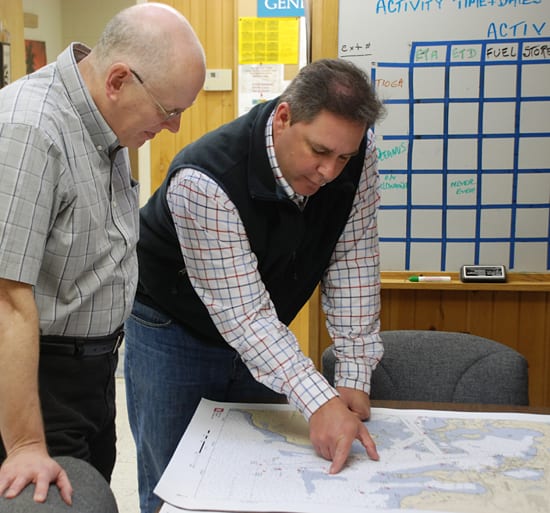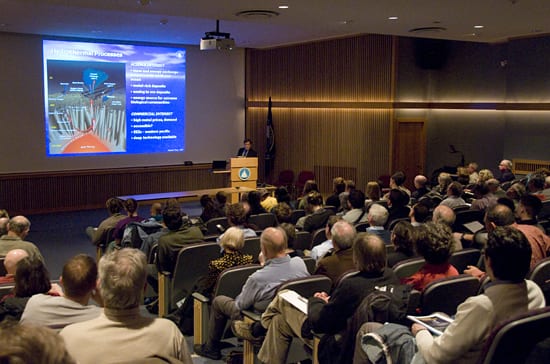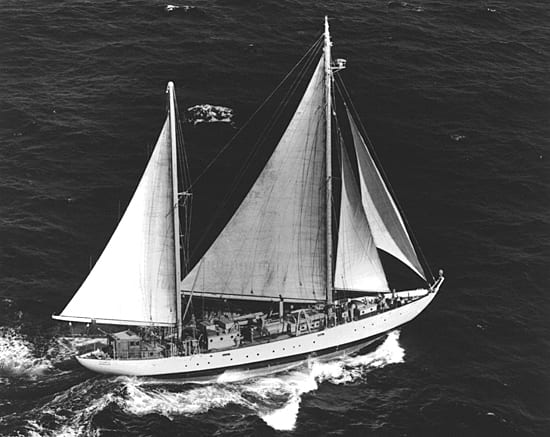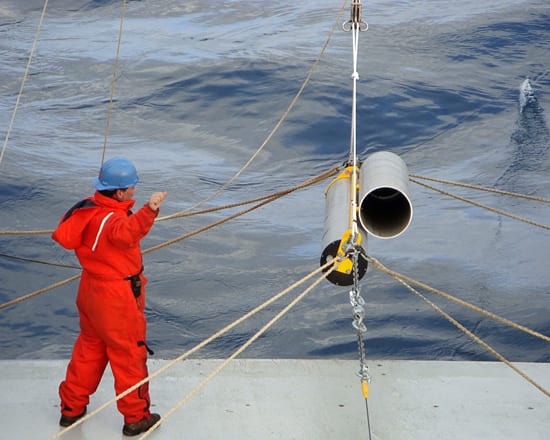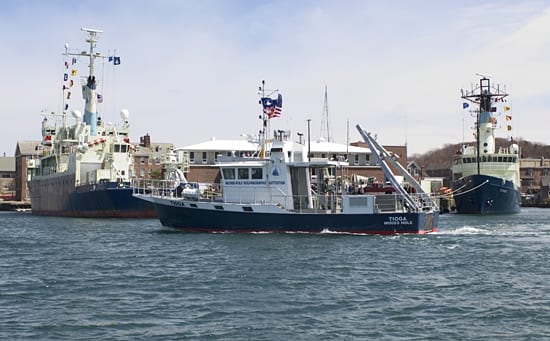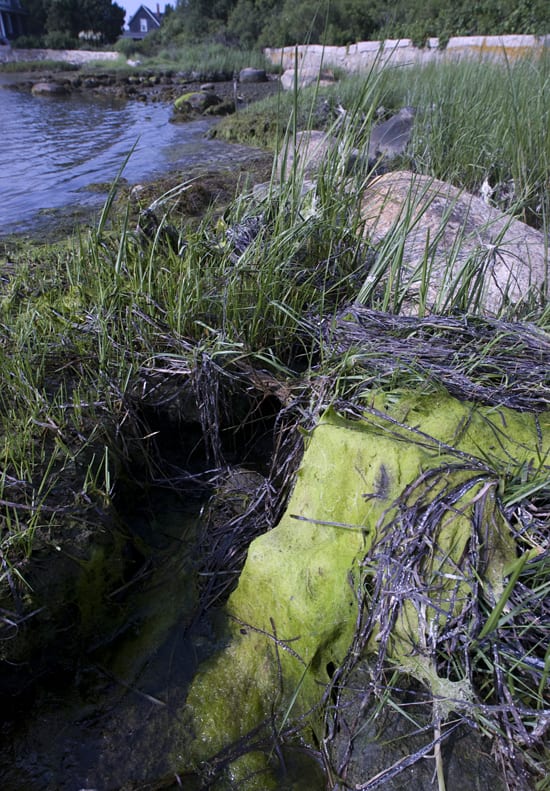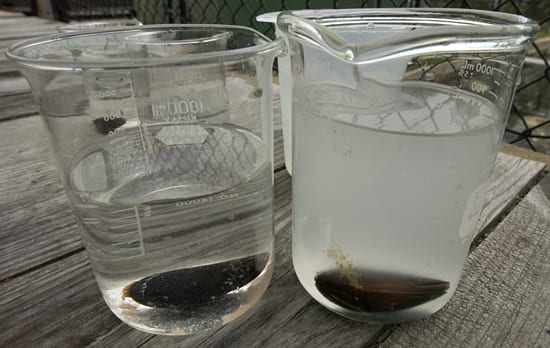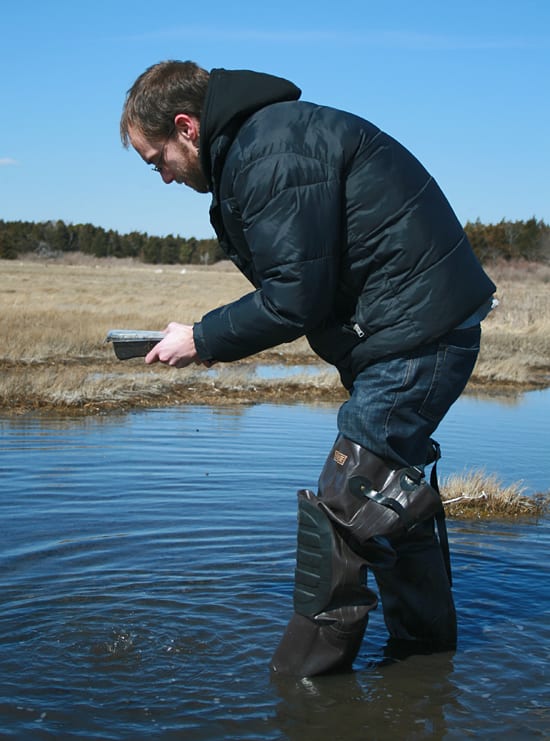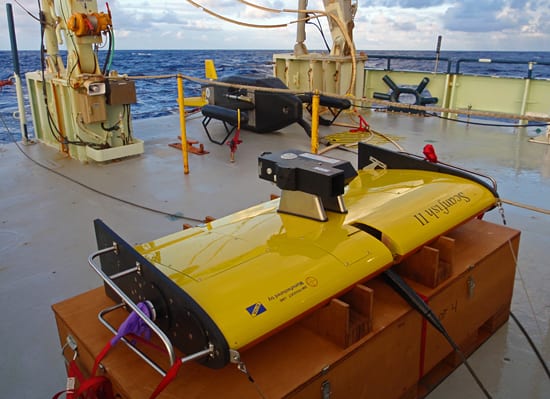Multimedia Items
Take the A-Frame
Scientific instruments go into the water off the back of the ship, from an area called the fantail. Here, a pair of bongo nets— they look like a pair of…
Read MorePassing muster
A trio of Emperor penguins appear to inspect a sled full of equipment during an Antarctic expedition in January. The team of researchers, led by Stan Jacobs of Lamont Doherty…
Read MoreComing and going
The R/V Nathaniel B. Palmer pulled alongside an ice floe during a January-February 2009 Antarctic research cruise, so scientists aboard could take ice cores and samples. On the surface of…
Read MoreAhead of the pack
Twelve hours out of Dutch Harbor, Alaska, the scientists and crew aboard the Coast Guard Cutter, Healy, encountered the first patches of sea ice on their 40-day expedition. The research…
Read MoreDress rehearsal
A crane lifts WHOI’s newest vehicle, Nereus, off the dock and into the water for testing before it is sent to the “show” — the Challenger Deep in the Pacific’s…
Read MoreAn Ocean YoYo
A moored profiler is deployed from research vessel Oceanus in the western subtropical North Atlantic for climate change studies. Moored profilers take repeated measurements of ocean currents and water properties…
Read MoreHappy Earth (?) Day
Earth is an ocean planet. More than 70% of its surface is covered by ocean with an average depth of just over two miles. But how much water is there…
Read MoreAntarctic sojourner
After spending 12 hours on the ice, at a distance of more than 5 kilometers (3.1 miles) from their ship the R/V Nathaniel B. Palmer, engineers have installed the first…
Read MoreOrange aide
Engineering assistant Rob Handy handles a line during recovery of an ocean bottom seismometer (OBS) aboard R/V Atlantis in January 2009. The OBS was just one of 41 deployed along…
Read MoreToasting a new ship
Donor Hope Smith christens the R/V Tioga on March 29, 2004, as then-WHOI Director of Marine Operations Dick Pittenger looks on. The name Tioga comes from the Iroquois for “swift…
Read MoreAir fishing
The return of the famed osprey pair to the nest on the WHOI Quissett Campus is a sure sign that spring has almost sprung. Ospreys, which dine almost exclusively on…
Read MoreDown a slippery (and bouncy) slope
A multi-institutional team of researchers, led by WHOI biologist Carin Ashjian, are in the Arctic’s Bering Sea to study sea ice and how climate change could be affecting the region’s…
Read MoreThe little ship that could
Since its delivery to Woods Hole on April 16, 2004, the coastal research vessel Tioga, shown here approaching the WHOI dock, has been used to collect water samples during harmful…
Read MoreInto the wide blue yonder
The U.S. Coast Guard Cutter Healy steams north out of Dutch Harbor, a port in the Aleutian Islands of southwestern Alaska, heading toward the ice of the Bering Sea. The…
Read MorePhoning home
Engineer Jim Valdes observes a SOLO (Sounding Oceanographic Lagrangian Observer) float‘s response to commands in a test tank facility. Autonomous instruments that drift with the currents while measuring ocean temperature…
Read MoreCharting a new course
Eric Benway from WHOI Marine Operations (center) points out the proposed new alignment of channel markers in Great Harbor to Al Suchy, Director of Ship Operations at WHOI. A meeting…
Read MoreDig what he’s saying?
Maurice Tivey, a geologist at WHOI, addressed an international group of scientists, policymakers, environmentalists, and industry representatives who gathered at WHOI in early April 2009 for a workshop and public…
Read MoreR/V Atlantis, 1931-1964
Atlantis was the first Woods Hole Oceanographic Institution research vessel and the first ship built specifically for interdisciplinary research in marine biology, marine geology and physical oceanography. The “A-boat” made…
Read MoreIn the mix
WHOI senior engineering assistant Brian Guest deploys one of six sound sources from the R/V Roger Revelle as part of the Diapycnal and Isopycnal Mixing Experiment in the Southern Ocean…
Read MoreTioga Slideshow
Slippery when wet
What looks like a lime-green sheet of paper is actually a mat of algae. Harmful algal blooms, like this one in West Falmouth Harbor, Mass., can occur in coastal waters…
Read MoreBlue mussels
Diane Poehls Adams, a guest investigator in the Biology Department, cultures blue mussels (Mytilus edulis) from larvae to mature adults in an effort to learn which are most successful in…
Read MoreMarsh sentinels
Postdoctoral scholar Adam Reitzel collecting the “starlet sea anemone”, Nematostella vectensis, at Great Sippewissett Marsh. Adam and other members of Ann Tarrant’s lab in the Biology department are interested in…
Read MoreWaiting in the wings
The bright yellow “ScanFish II,” a new towed vehicle that takes samples while it flies up and down in the water, and the Video Plankton Recorder (background) are stowed on…
Read More
